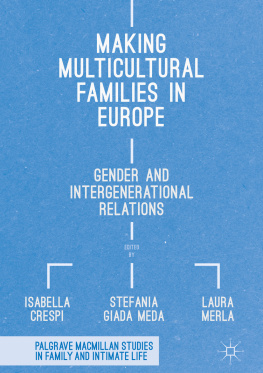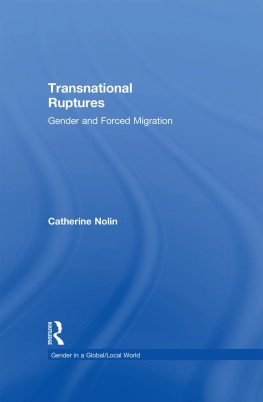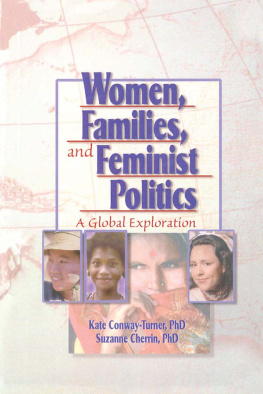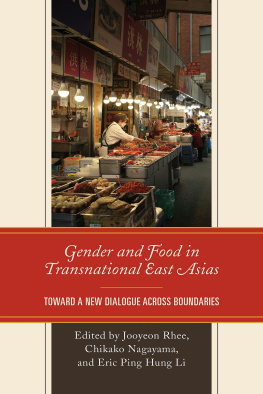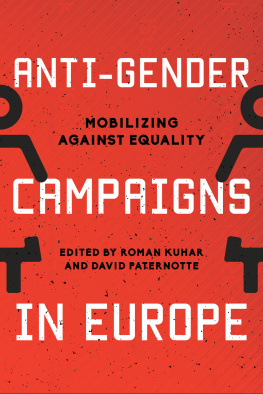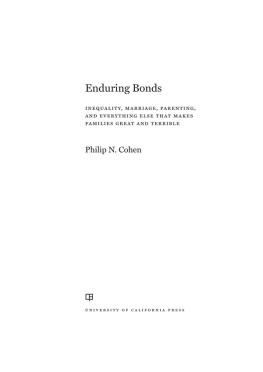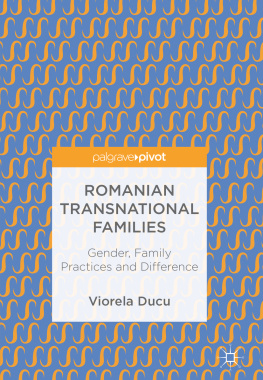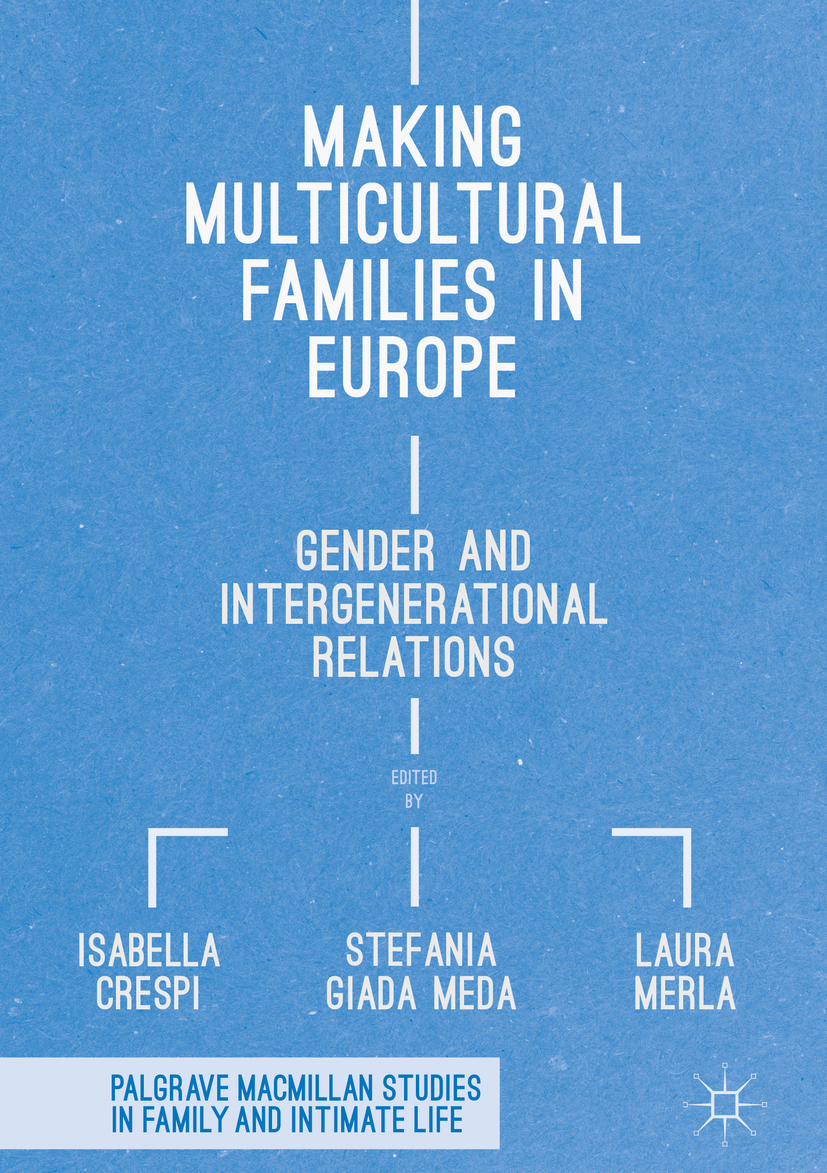Palgrave Macmillan Studies in Family and Intimate Life
Series Editors
Graham Allan
Keele University, Keele, UK
Lynn Jamieson
University of Edinburgh, Edinburgh, UK
David H. J. Morgan
University of Manchester, Manchester, UK
The Palgrave Macmillan Studies in Family and Intimate Life series is impressive and contemporary in its themes and approaches
Professor Deborah Chambers, Newcastle University, UK, and author of New Social Ties
The remit of the Palgrave Macmillan Studies in Family and Intimate Life series is to publish major texts, monographs and edited collections focusing broadly on the sociological exploration of intimate relationships and family organization. The series covers a wide range of topics such as partnership, marriage, parenting, domestic arrangements, kinship, demographic change, intergenerational ties, life course transitions, step-families, gay and lesbian relationships, lone-parent households, and also non-familial intimate relationships such as friendships and includes works by leading figures in the field, in the UK and internationally, and aims to contribute to continue publishing influential and prize-winning research.
More information about this series at http://www.palgrave.com/gp/series/14676
Editors
Isabella Crespi , Stefania Giada Meda and Laura Merla
Making Multicultural Families in Europe Gender and Intergenerational Relations
Editors
Isabella Crespi
Department of Education Cultural Heritage and Tourism, University of Macerata, Macerata, Italy
Stefania Giada Meda
The Catholic University Centre for Family Studies and Research, Universit Cattolica del Sacro Cuore di Milano, Milan, Italy
Laura Merla
Centre interdisciplinaire de Recherche sur les Familles et les Sexualits, Universit catholique de Louvain, Louvain-la-Neuve, Belgium
Palgrave Macmillan Studies in Family and Intimate Life
ISBN 978-3-319-59754-6 e-ISBN 978-3-319-59755-3
https://doi.org/10.1007/978-3-319-59755-3
Library of Congress Control Number: 2017962009
The Editor(s) (if applicable) and The Author(s) 2018
This work is subject to copyright. All rights are solely and exclusively licensed by the Publisher, whether the whole or part of the material is concerned, specifically the rights of translation, reprinting, reuse of illustrations, recitation, broadcasting, reproduction on microfilms or in any other physical way, and transmission or information storage and retrieval, electronic adaptation, computer software, or by similar or dissimilar methodology now known or hereafter developed.
The use of general descriptive names, registered names, trademarks, service marks, etc. in this publication does not imply, even in the absence of a specific statement, that such names are exempt from the relevant protective laws and regulations and therefore free for general use.
The publisher, the authors and the editors are safe to assume that the advice and information in this book are believed to be true and accurate at the date of publication. Neither the publisher nor the authors or the editors give a warranty, express or implied, with respect to the material contained herein or for any errors or omissions that may have been made. The publisher remains neutral with regard to jurisdictional claims in published maps and institutional affiliations.
Cover design by Tjaa Krivec
This Palgrave Macmillan imprint is published by the registered company Springer International Publishing AG part of Springer Nature
The registered company address is: Gewerbestrasse 11, 6330 Cham, Switzerland
Foreword
Current popular and political discourse in much of Europe and in the USA frequently constructs migrants and natives as living parallel lives. The negative effects on social cohesion and the challenges for national security that supposedly ensue are widely lamented by the same voices, which also advocate legislation and policies targeted on migrant communities. This volume is a timely reminder, however, that micro-level multi-cultural practices in traditional countries of immigration in Europe render such a discourse a myth in the case of many people. The starting point of this volume rather, is that intimate relationships are commonly forged across ethnic, national, and cultural boundaries, producing so-called multi-ethnic or mixed families.
How do people make family, especially in terms of gender and intergenerational relations, in the context of cultural plurality? How are different childrearing practices negotiated? What strategies are developed to manage divergent norms around childrens obligations to parents in old age? How are competing notions of the appropriate gender division of labour reconciled? Are family relationships different in these multi-cultural families compared with mono-cultural families? Part 1 of this book provides answers to those questions, drawing on empirically rich studies employing a range of methodologies and spanning diverse circumstances, which include: Thai women living in Belgium and married to non-Thai men; European bi-national couples in the UK; marriage between first-generation Turkish men and third-generation Turkish women in Germany; and couples living in the UK composed of Persians and non-Persians.
In Part 2, this volume considers another type of family being made in contemporary landscapes of migration and (im)mobility, although having antecedents of various forms in previous eras. These are so-called transnational families, whose members are dispersed across borders as they are pushed or pulled out of homelands in search of asylum, better economic futures, or improved lifestyles. While their separation is sometimes by choice, it is often enforced by restrictive migration laws based on utilitarian principles, which may permit the entry of a worker deemed instrumental to the economic needs of the country, but not allow (all) his or her dependants entry, or impose strict conditions on their entry, which migrant workers find impossible to meet. In such cases, migrants and their families have little or no choice but to live apart.
While traditional understandings of family assumed that proximity was a pre-requisite for successful family functioning, research on transnational families has revealed the ways in which family-life can be sustained across distance. The contributions to Part 2 of this volume invite us to consider the centrality of gender and generational relations in transnational family processes in multiple contexts, and offer reflections on important questions, including: is the effect of spatial distance inevitably negative for kinship relationships?; how are gender norms and relations within families re-worked across distance?; how does family solidarity stand up over sustained periods of separation?; what new roles for children, parents, and grandparents emerge in scenarios of transnational family living?; how are family values challenged and renegotiated for families situated in multi-local contexts that are characterized by different care regimes?
In bringing together in one place research on multi-ethnic families and research on transnational families, the editors of this volume challenge the silo, common in UK scholarship at least, between race and ethnicity studies on the one hand and migration studies on the other hand. In doing so, they illuminate the reflexivity that is required by different actors within families to make family work in the context of both pluriculturalism and mobility. This is an important contribution with potential to inform wider debates about the reflexive skills required to forge societal solidarity in an increasingly diverse and mobile Europe.

